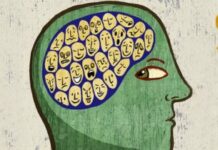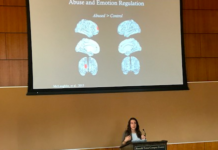Researchers Reveal Misconceptions About ADHD
A new article explains common misconceptions about ADHD that are held by teachers and mental health professionals and may lead to overdiagnosis and overmedication in schools.
Unanswered Questions in New Mental Health Screening Program for Children
An article presents new screening tools for pediatric depression and anxiety—but fails to answer its own questions about efficacy.
Do Some Trauma Survivors Cope by Overworking?
From The Atlantic: Like other addictions, workaholism may be a response to trauma. Overworking is the way that some trauma survivors cope with hypervigilance, grief, and...
When International Psychiatric Aid Gets it Wrong: Street Children in Cairo
Study questions how international psychiatric treatment of street children in Cairo could be reinforcing their marginality and vulnerability.
“I Was Afraid to Dismantle the Story About Depression”
In this interview for The Guardian, Johann Hari discusses his latest book, Lost Connections, which critiques bioreductionist models of depression and anxiety and emphasizes environmental influences...
Neoliberalism Drives Increase in Perfectionism Among College Students
Meta-analytic study detects upsurge in patterns of perfectionism in young adults and explores how neoliberalism contributes to this trend.
Psychology Must Become a Sanctuary Discipline to Heal Racial Trauma
Researchers explore pathways of healing racial trauma in Latinx immigrant communities.
Why We’re a Culture of Addicts
From Uplift Connect: Addiction tends to be viewed through one of two lenses - as a genetic disease or a moral failure. According to Dr. Gabor...
How Relational Therapy Enhances a Sense of Self and Relationships
Relational therapy can be informed by the intersubjective dynamics observed in early childhood to facilitate the development of healthy relational patterns and a strong sense of self.
Researchers Develop New Model for Understanding Depression
Acknowledging that current depression treatments are failing many people, researchers from Michigan State and MIT have developed a new model for understanding how multiple psychological, biological, social and environmental factors contribute to depression.
Coping With Trauma in the Classroom
From the Stamford Advocate: Increasing numbers of students have been affected by trauma; almost half of American adolescents have experienced an adverse childhood event. It...
Adverse Childhood Events Contribute Significantly to Most Mental Health Problems
John Read and Richard Bentall write in the British Journal of Psychiatry about the growing understanding and acceptance of the significant role adverse childhood...
Children with Autism may be Over-diagnosed with ‘ADHD’
A commonly used ADHD diagnostic measure may find overlapping symptoms in autism and ADHD, resulting in over-diagnosis.
On the Analysis of Mental Health and Psychotherapy
In this interview with Bernard Guerin, author of How to Rethink Psychology, How to Rethink Human Behavior, and How to Rethink Mental Illness, Guerin discusses his conceptualization of...
After a Turbulent Childhood, on a Path to a Healthier Life
In this piece for The New York Times, Emily Palmer describes the life journey thus far of Charles Louis, from being prescribed two psychiatric medications in...
Childhood Maltreatment Reduces Hippocampal Volume
Researchers at Harvard University, in the largest and most detailed study on the topic to date, found that childhood maltreatment is significantly associated with...
“Kids in Foster Care Three Times More Likely to be Diagnosed with ADHD”
PsychCentral presents a new study from the Center for Disease Control and Prevention (CDC) that found that foster care children are three times more likely than other children on Medicaid to receive a diagnosis of ADHD. Overall, more than one in four children in foster care receive such a diagnosis. CDC statistician Melissa Danielson interpreted these results as revealing a “substantial need” for more medical and behavioral services for kids in foster care.
How Neglect and Abuse Change Children’s Brains
From the Center for Health Journalism: Different types of childhood adversity shape the developing brain in distinct ways and need to be addressed accordingly. While...























